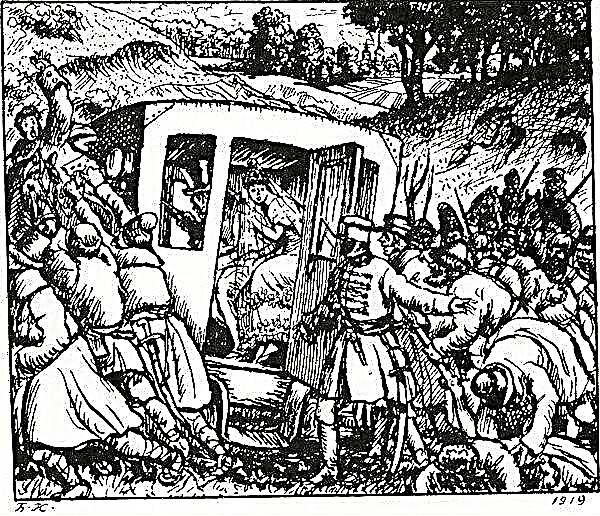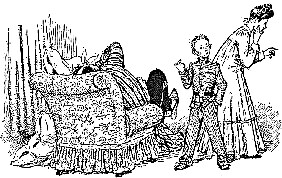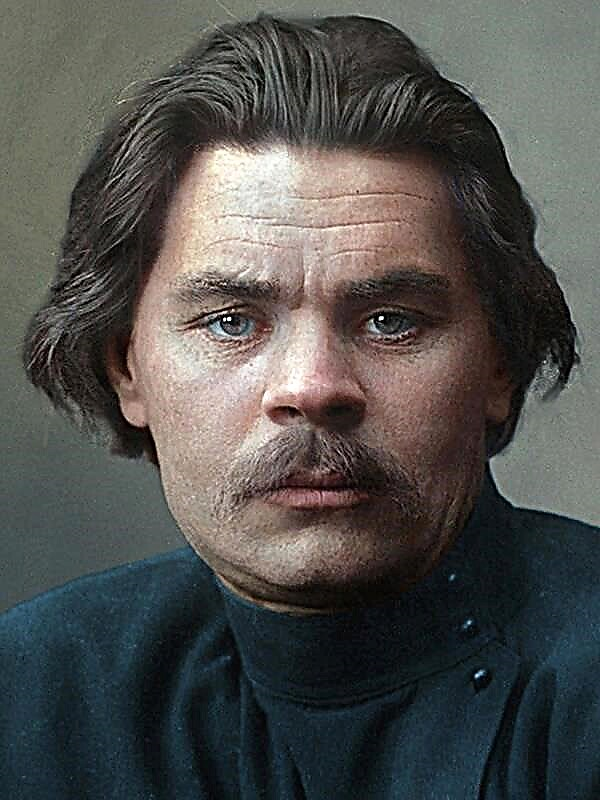Introduction
What is the role of the state in a developed industrial society? To answer this question, for a start, four theoretical positions should be designated as a framework for discussion. We will call these positions.
- Classical liberalism.
- Libertarian socialism.
- State socialism.
- State capitalism.
Let's consider each in turn.
Classic liberalism
The main idea of classical liberalism is the opposition to all forms of state intervention in personal and social life, except for the extremely limited and minimal. One of the earliest and most brilliant interpretations of this position is contained in the book of Wilhelm von Humboldt's “On the Limits of State Activity”, written in 1792, but published only sixty years later.
From the point of view of Humboldt, the state seeks to "turn a person into an instrument for serving their own, arbitrarily chosen goals, which do not take into account his own intentions." People at their core are free, seeking, self-improving beings, therefore, the state is a deeply inhuman institution. In the next century, the ideas of Humboldt were developed by Marx, Bakunin, Mill.
For Humboldt, the main asset of man is his freedom. Everything that does not come from a person’s free choice, but is done as a result of guidelines, does not become part of his being, but remains alien to his nature; he does all this not with true human energy, but only with mechanical precision.
Thus, Humboldt claims that man was born in order to learn and create. This is very instructive and interesting in comparison with the arguments of Marx about "alienation of labor, when labor is imposed on the worker from outside, and is not part of his nature, so that he does not realize himself and feels unhappy, physically exhausted and morally humiliated." It is alienated labor that "casts some workers to barbaric forms of work, and turns others into machines", depriving a person of his "generic nature", his "free conscious activity" and "productive, fruitful life."
Robert Tucker, for his part, very rightly remarked that Marx regarded the revolutionary as more of a disappointed producer than an unsatisfied consumer. And all of his much more radical criticism of capitalist relations of production flowed directly (and often clothed in the same words and phrases) from the libertarian thought of the Enlightenment. For this reason, it can be said that classical liberal ideas, by their very nature - although not in the form that they have now acquired - are extremely anti-capitalist.
Significantly ahead of his time, Humboldt presents an anarchist vision, which, probably, corresponds to the next stage of development of industrial society. Perhaps one day the day will come when all these areas will unite at the heart of libertarian socialism.
Libertarian Socialism
Anarchism happens in all colors of the rainbow, but the author is interested in a specific option, namely Bakunin’s anarchism, which he wrote in his manifesto of 1865: “To be an anarchist, you must first become a socialist”. He is also interested in the anarchism of Adolf Fischer, one of the martyrs of the Haymarket massacre of 1886, who believed that "every anarchist is a socialist, but not every socialist is necessarily an anarchist."
Haymarket Massacre. On May 1, 1886, a multi-thousand-strong demonstration of workers took place in Chicago demanding the establishment of an 8-hour working day.Workers began a strike that was initially peaceful. The first casualties resulted from clashes with police and strikebreakers on May 3 and 4. Then, during a rally in Haymarket Square, an unknown man threw a bomb, from the explosion of which several policemen died. The terrorist (or provocateur) was never found, but the court sentenced seven working leaders to death, the eighth to 15 years in prison. Mass protests in the United States and Europe forced the Illinois state authorities to replace the death penalty with life imprisonment for two, one more day died in prison under unclear circumstances, and the four remaining were hanged on November 13, 1887. Six years later, the new state governor released the prisoners, recognizing their innocent in the bombing. In memory of these events, the United States Labor Federation decided to celebrate May 1 with labor demonstrations annually.
A consistent anarchist must oppose private ownership of the means of production. Such property, as Proudhon correctly noted, is, of course, a form of theft. But a consistent anarchist will oppose the "organization of production by the state." This means state socialism, when production is run by government officials, and in trade are managed by managers, scientists and employees.
Radical Marxism, which Lenin called the "childhood illness of leftism," merges with anarchist currents. The revolutionary socialist denies that state ownership can lead to anything other than bureaucratic despotism. We have seen why the state cannot democratically control production. Only the workers themselves can democratically manage and own production by means of management committees, which are formed by elections in the working environment.
It would be extremely naive to ignore Bakunin’s persistent warnings that the “red bureaucracy” would prove to be “the most disgusting, vile, vile and most dangerous lie of our century.”
Counterarguments
Against such a social structure in a complex, high-tech society, there are counterarguments, and the author divides them into two main categories. In the first case, it is argued that such an organization is contrary to human nature, in the second - that it is incompatible with the requirements of "efficiency".
They often ask: if people really want freedom, do they want the responsibility that accompanies it, or do they prefer that a generous master rule them? Two hundred years ago, Rousseau wrote: “I know that [those who renounced freedom] do not get tired of extolling the peace and tranquility that they enjoy in their fetters ... But when I see others sacrifice pleasures, peace, wealth, power and even life itself, in order to preserve only this property, to which those who lost it treat such neglect ... when I see how crowds of completely naked savages despise the pleasures of Europeans and do not pay attention to hunger, fire, iron and death in order to maintain their independence , I understand that it was not slaves to talk about freedom. "
Is democratic control over the industrial system at the level of its most elementary functional units incompatible with efficiency? Someone, for example, says that centralized management is a technological imperative, but the author believes that upon careful consideration this argument is extremely vulnerable.
Ludwig von Mises back in the 1920s showed that socialism is economically impossible.
State socialism and state capitalism
The democratic system under capitalist democracy is limited at best by a narrow sphere of authority.And even within this narrow sphere, concentrated private power and an authoritarian, passive model of thinking imposed by autocratic institutions, such as enterprises, have a huge influence on it.
Capitalism and democracy are incompatible. In all parliamentary democracies, the role of parliament in policy-making has been weakening and has subsided since the end of World War II. The power of the executive branch is constantly growing as the planning functions in the state become more and more important.
Senator Vandenberg twenty years ago expressed concern that the chief executive of America would eventually become "the number one commander in chief on Earth." He was right. This was most clearly manifested in February 1965, when the decision on full-scale military intervention in Vietnam was made with a cynical disregard for the clearly expressed will of the voters.
Unfortunately, you cannot recall these villains, because you did not elect them. Corporate executives, corporate lawyers
George Ball explained that the project of creating an integrated global economy led by American capital - in other words, empires - is not an idealistic fantasy, but a sober forecast. Through such transnational corporations, Ball believes, global resources can be used with “maximum efficiency,” and their international operations and markets around the world will ultimately be protected by the US military.
What threatens communism to this system? A study by the Woodrow Wilson Foundation and the National Planning Association entitled “Political Economy of American Foreign Policy” sees the threat of communism in that it weakens the willingness and ability of economically underdeveloped countries to function in the global capitalist economy like, for example, the Philippines, a country that has developed after seventy-five years American wardship and the dominance of the classical colonial economy.
It should be added to this picture another, last component, namely, the continuous militarization of American society. All this is well described by business historian Alfred Chandler. Here is what he said about the economic lessons of World War II: “The state spent much more than even the most ardent follower of the New Deal could have expected. Most of the products for which these funds were spent were destroyed or left on the battlefields in Europe and Asia. But the increased demand as a result brought the nation a period of prosperity, something like which we never knew before. ”
To this it must be added that the ensuing Cold War led to an even more politicized American society and created a psychological environment in which the state has the opportunity to intervene in the economy - partly through financial policy, partly through public works and public services, but to a great extent, of course through military spending.
Samuel Downer, vice president of LTV Aerospace, explained why the post-war world should rely on military orders: "We will increase defense spending until we catch up and overtake these bastards in Russia."
Of course, “these bastards” are by no means ahead of us in this deadly and cynical game, but this does not particularly interfere with such allegations.The Cold War is a way of internal control, an instrument to instill paranoia and psychosis, when taxpayers are willing to provide a huge flow of subsidies for technically advanced sectors of American industry and corporations.
In many ways, American society is indeed open, and liberal values are preserved in it. Nevertheless, as the poor, blacks, and other ethnic minorities in this country are well aware, the liberal layer is extremely thin. Mark Twain once said that “by the grace of God we in America received three invaluable gifts: freedom of speech, freedom of conscience and prudence that keeps us from using them.”
By ceasing to agree with what is being ruled by us (which, perhaps, we should do), we would no longer allow these people and the interests they represent to control American society and impose on us their concept of world order and ideas about the correct political and economic development.


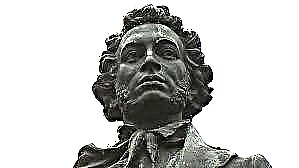
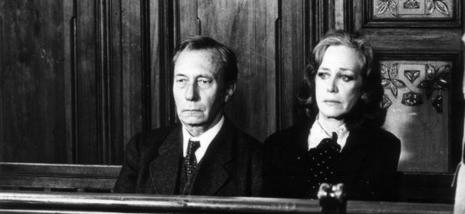
 Criminal mother
Criminal mother